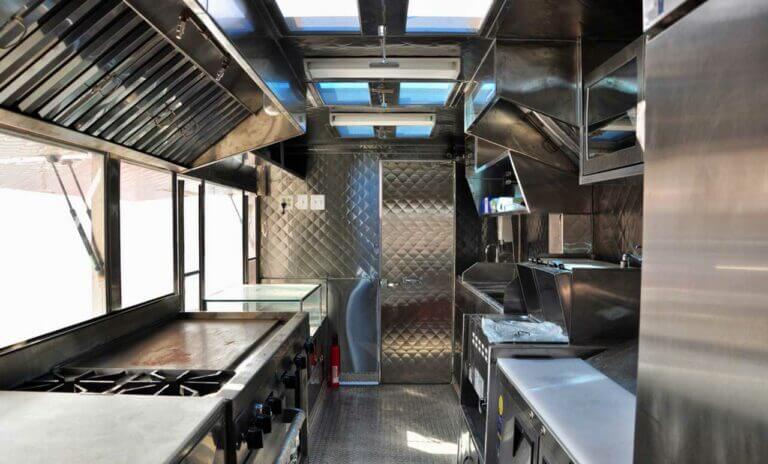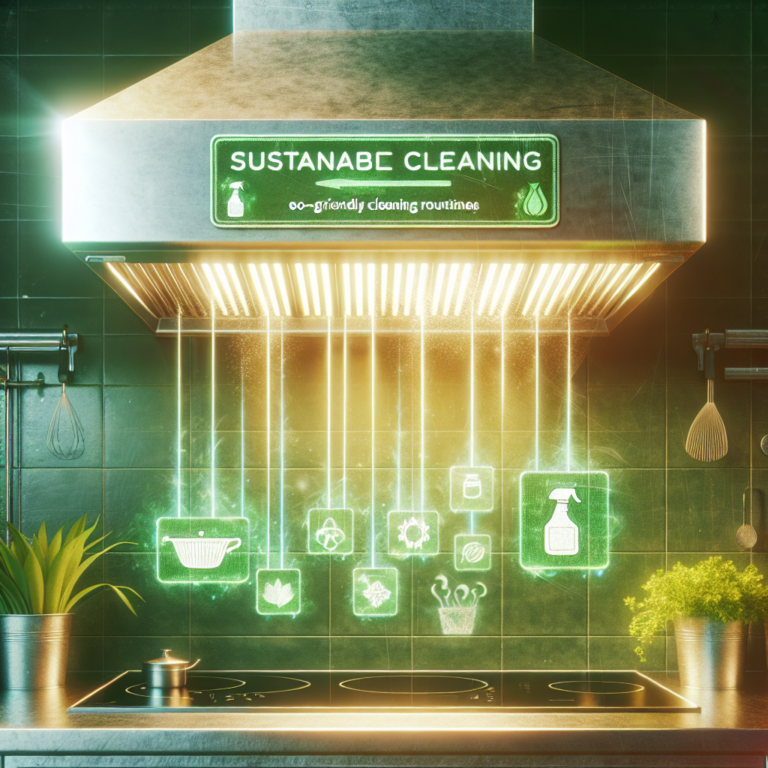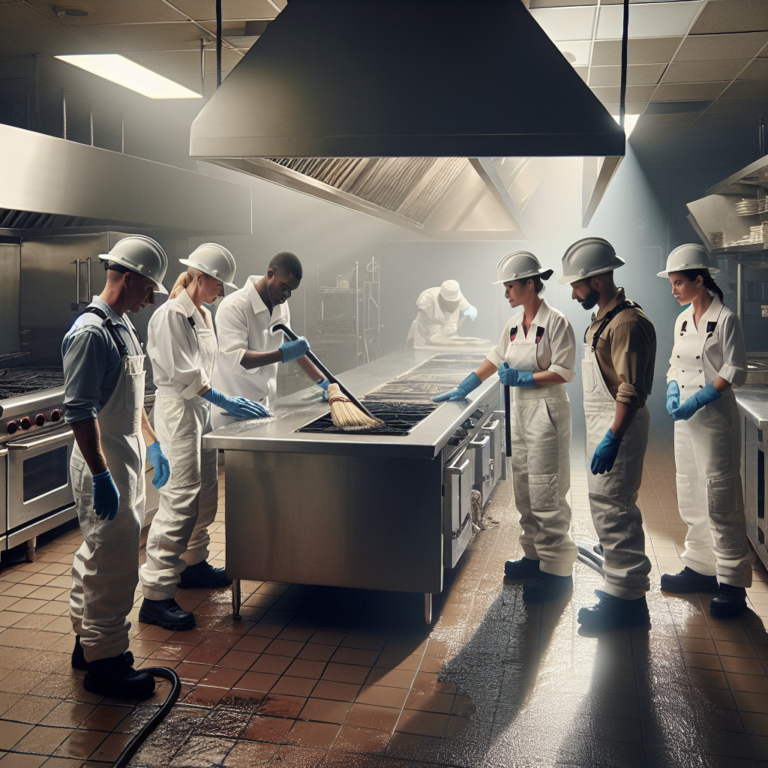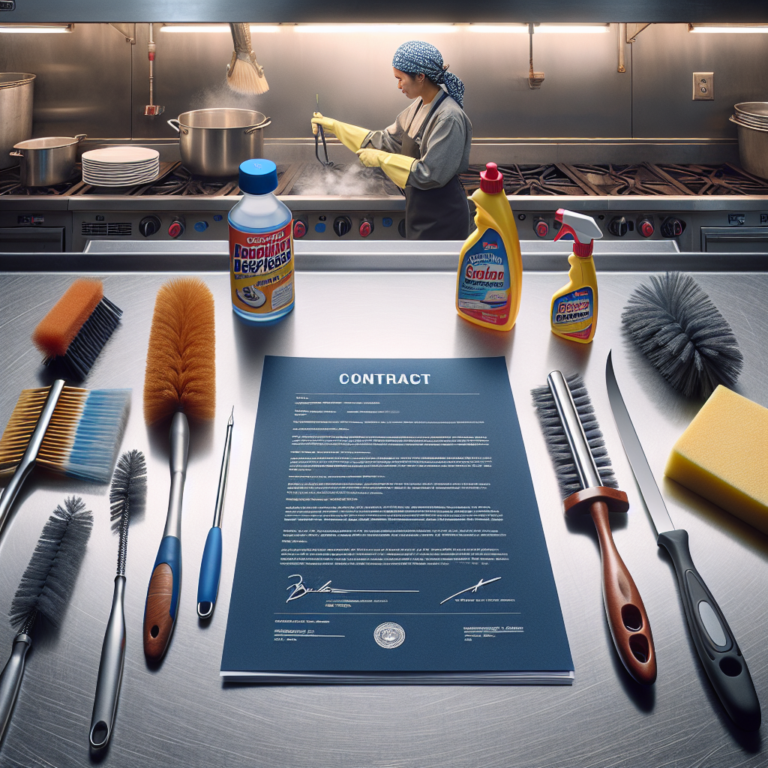Eco-Friendly Hood Cleaning for Sustainable Kitchen Design Solutions
Integrating Sustainability into Kitchen Spaces
In today’s world, sustainability isn’t just a buzzword; it’s becoming a cornerstone of modern design and functionality, particularly in commercial kitchens. But what does this mean in practice? For establishments in Los Angeles, Santa Monica, and Orange County, integrating hood cleaning into sustainable kitchen design is a priority that can reduce environmental impact while maintaining high standards of hygiene and safety.
The Role of Exhaust Hood Cleaning
Exhaust hoods are vital for the safe and effective operation of any commercial kitchen. Regular exhaust hood cleaning not only prevents buildup of greasy residue that can be a fire hazard but also contributes to better air quality and energy efficiency. In areas like Los Angeles, where air quality regulations can be strict, maintaining a clean exhaust system is even more critical.
Sustainable Materials and Design
Implementing sustainable materials in kitchen design can have a significant positive impact on the environment. Using materials like recycled steel for hoods or eco-friendly cleaning agents during restaurant hood cleaning offers a greener solution that establishments can adopt. Moreover, investing in efficient cooking equipment adjacent to the hoods can decrease the overall energy consumption.
Designing for Efficiency
Smart Ventilation Systems
Modern technology brings smart ventilation systems that adjust the exhaust volume based on the kitchen’s needs, further promoting sustainable practices. These systems play a crucial role in optimizing the efficiency of commercial kitchen hood cleaning processes by ensuring that only requisite airflows are managed, leading to reduced energy waste.
Water-Based Cleaning Systems
Water-based cleaning systems are another sustainable option. They help reduce the dependency on chemical cleaners, making the entire commercial kitchen hood cleaning process less polluting. By harnessing steam and high-pressure water, these systems effectively remove grease without harsh chemical footprints.
Environmental and Health Benefits
Reducing Carbon Footprint
For businesses in Los Angeles keen on minimizing their carbon footprint, focusing on sustainable kitchen design, including efficient hood cleaning, is imperative. By reducing the reliance on heavy-duty cleaning agents and enhancing the efficiency of air exhaust, kitchens can significantly lower their environmental impact.
Enhancing Indoor Air Quality
Regular exhaust hood cleaning improves indoor air quality by removing smoke, heat, and odors more effectively. Poor air quality in kitchens often leads to health issues for staff, highlighting the importance of incorporating effective ventilation systems as a health measure.
Economic Benefits
Cost Savings
While initial investments in sustainable materials and smart ventilation systems might seem high, they pay off in the long run. Reduced energy consumption and lower maintenance costs associated with efficient restaurant hood cleaning systems lead to significant savings over time.
Extended Equipment Life
Regular commercial kitchen hood cleaning can prolong the life of kitchen equipment by preventing grease and grime buildup, which can cause deterioration or more frequent breakdowns. This approach aligns economic efficiency with sustainability, proving beneficial for any culinary space.
Conclusion
Marrying sustainability with efficient kitchen design is not only beneficial for the environment but also advantageous for business operations. For restaurants and commercial kitchens in urban centers like Los Angeles, implementing strategies for ongoing and effective hood cleaning can result in a cleaner, safer, and more economical kitchen environment. By choosing to adopt sustainable practices today, we help pave the way for a healthier tomorrow.







